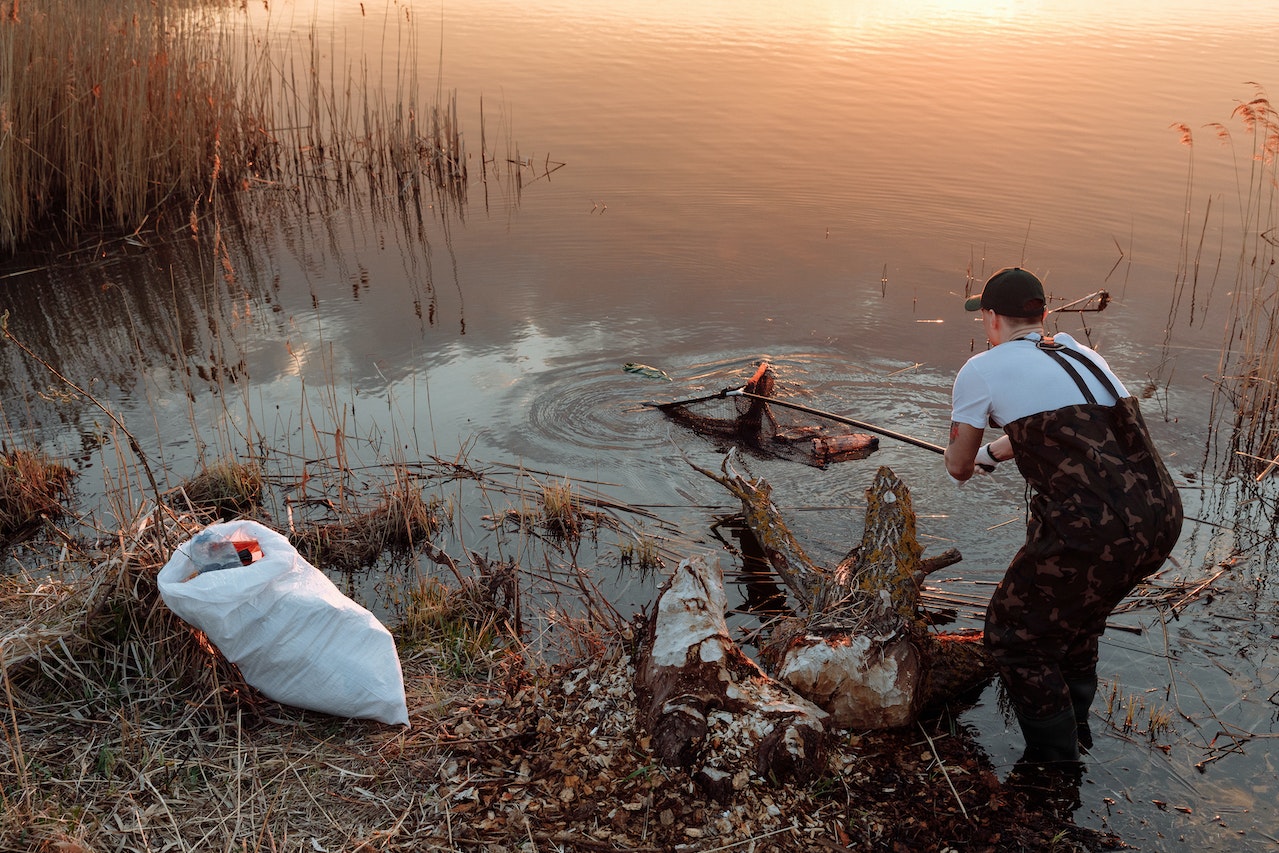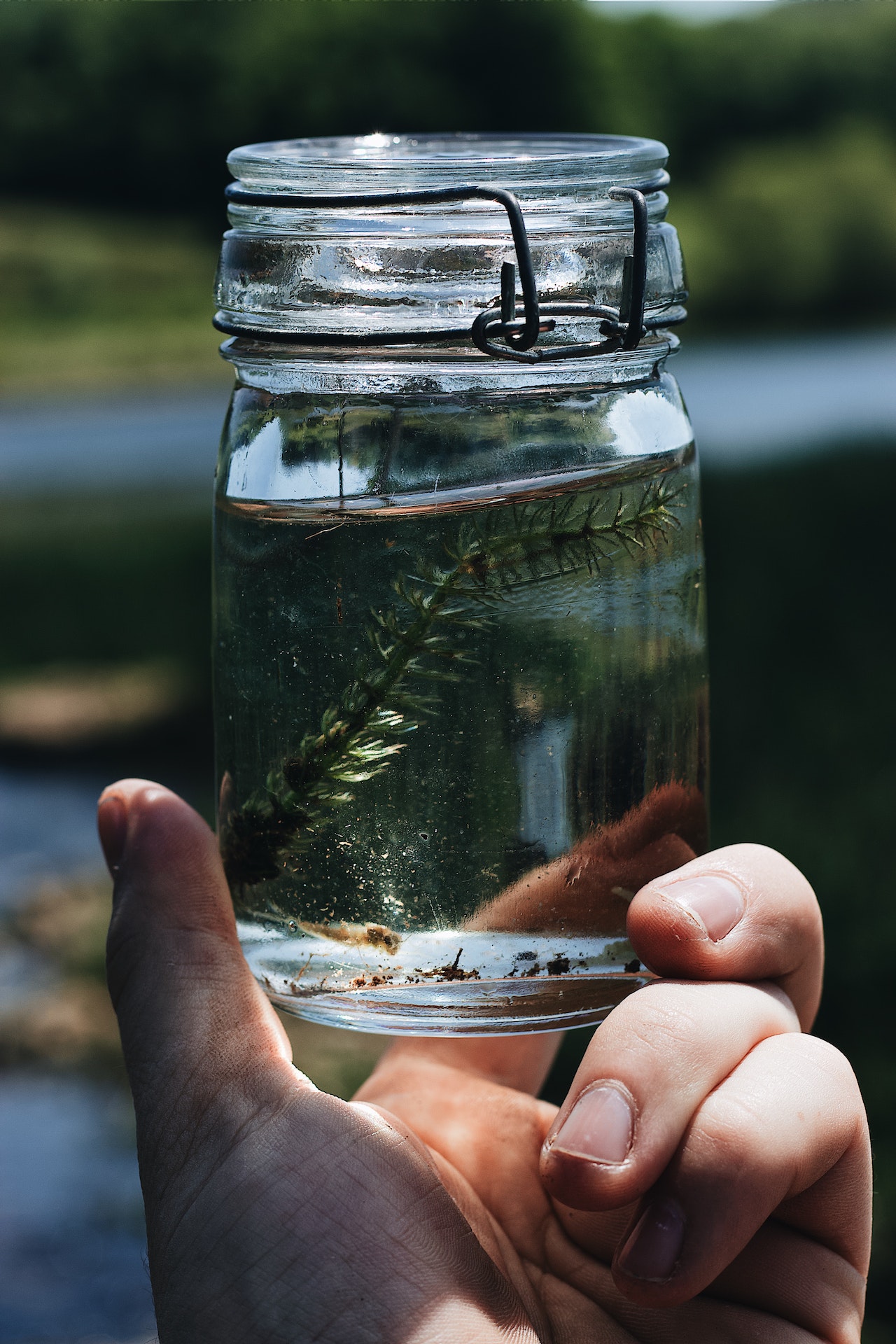B.I.S. Interdisciplinary Studies Program Map

Natural Resources Management Pathway
This pathway can be effectively combined with Minors in fields such as Biology, Geography, Geology, or Political Science, and Certificates such as Stream Restoration or Atmospheric Science. Undergraduate students can tailor their degree with coursework in: Wildlife & Fisheries Ecology; Air, Water, & Land; and Human Dimensions.
Stats
60
Core Credit Hours
40
Major Credit Hours
20
Elective Credit Hours
- Plan Your Degree
- Crush Your Course
- Find Your Place
- Broaden Your Perspectives
- Connect Off-Campus
- Take Care of Yourself
- Pave Your Path
Plan Your Degree
Disclaimer: This program map is intended ONLY as a guide for students to plan their course of study. It does NOT replace any information in the Undergraduate Catalog, which is the official guide for completing degree requirements.
| Course Name | Credit Hours |
|---|---|
|
C1: ENGL 1101
English Composition I |
3 |
|
M: MATH 1111
College Algebra |
3 |
|
S1: HIST 1111 OR 1112
World History |
3 |
|
P2: POLS 1101
American Government |
3 |
|
I1: COMM 1110
Oral Communications |
3 |
Milestones:
- Complete ENGL 1101 with a C or better
- Complete Core IMPACTS Math
| Course Name | Credit Hours |
|---|---|
|
C2: ENGL 1102
English Composition II |
3 |
|
F: MATH 1113
Precalculus |
4 |
|
F: BIOL 1107 + Lab
Principles of Biology I |
4 |
|
P1: HIST 2111 OR 2112
US History |
3 |
|
I2: Institutional Options |
1 |
Milestones:
- Complete ENGL 1102 with C or better
- Complete MATH 1113 with C or better
- Complete BIOL 1107/1107L with C or better
- Reach 30 credit hours for Fall/Spring Combined
15 Fall Credit Hours + 15 Spring Credit Hours = 30 Credit Hours
| Course Name | Credit Hours |
|---|---|
| F: BIOL 1108 + Lab
Principles of Biology II |
4 |
|
T1: CHEM 1211 + Lab
Principles of Chemistry I |
4 |
|
F: GEOG 2553
Intro to GIS & Mapping |
3 |
|
A: Humanities |
3 |
Milestones:
- Complete BIOL 1108/1108L with C or better
- Complete CHEM 1211/1211L with C or better
| Course Name | Credit Hours |
|---|---|
|
T2: CHEM 1212 + Lab
Principles of Chemistry II |
4 |
|
T3: MATH 1401
Elementary Statistics |
3 |
|
F: GEOG 1121 + Lab
Physical Geology |
4 |
|
XIDS 2000
Intro to Interdisciplinary Studies |
3 |
Milestones:
- Complete CHEM 1212/1212L with C or better
- Complete XIDS 2000 with C or better
- Complete BIS Degree Plan and submit to Registrar.
| Course Name | Credit Hours |
|---|---|
|
S2: ECON 2106
Principle of Microeconomics |
3 |
14 Fall Credit Hours + 14 Spring Credit Hours + 3 Summer Credit Hours = 31 Credit Hours
| Course Name | Credit Hours |
|---|---|
|
BIOL 3168
Evolution and Ecology |
4 |
|
WFE1: BIOL 4427
Conservation Biology |
4 |
|
HD1: ECON 3480
Environmental & Natural Resource Economics |
3 |
|
Elective
3000/4000 level elective course |
4 |
| Course Name | Credit Hours |
|---|---|
|
XIDS 3000
Interdisciplinary Methods |
3 |
|
WFE2: BIOL 4425
Fire Ecology |
4 |
|
Elective
3000/4000 level elective course |
3 |
|
A: Humanities |
3 |
Milestones:
- Complete BIOL 3135
- Complete XIDS 3000 with a C or better and finish capstone proposal/plan
| Course Name | Credit Hours |
|---|---|
|
HD2: POLS 4209
Environmental Policy |
3 |
15 Fall Credit Hours + 13 Spring Credit Hours + 3 Summer Credit Hours = 31 Credit Hours
| Course Name | Credit Hours |
|---|---|
|
AWL1: GEOL 3603
Environmental Geology |
3 |
|
WFE3: BIOL 4424
Wildlife Habitat Ecology |
4 |
|
HD3: GEOG 3405
Geographies of Sustainability |
3 |
|
Elective
3000/4000 level elective course |
4 |
| Course Name | Credit Hours |
|---|---|
|
XIDS 4000
Interdisciplinary capstone |
3 |
|
Methods: ENGL 3405
Professional and Technical Writing |
3 |
|
Elective
3000/4000 level elective course |
4 |
|
Elective
3000/4000 level elective course |
4 |
Milestones:
- Complete XIDS 4000 with a C or better along with capstone project.
- Reach 39 credit hours at 3000/4000 level & 120 credit hours total.
14 Fall Credit Hours + 14 Spring Credit Hours = 28 Credit Hours
Crush Your Course
First Year:
- Make sure to take XIDS 2000: Introduction to Interdisciplinary Studies to start your intellectual, boundary-crossing journey!
- Discover your interests in your core classes. These can help you establish your disciplines.
Middle Years:
- Work with your IDS professors in XIDS 3000 to establish your degree plan, including identifying your complex problem and exploring how and what disciplines can help inform your inquiry.
Last Year:
- This is the time for your XIDS capstone! Make sure you have 9 hours of 3000-4000-level coursework for each of your two disciplines!
Find Your Place
First Year:
- Check out UWG’s Academic Transition Programs and take a cornerstone course (XIDS 2002).
- Explore events, clubs, and organizations available to you! Let the program and/or disciplines you’ve identified guide your search.
- Visit the Office of Undergraduate Research.
Middle Years:
- Attend UWG Scholars’ Day.
- Check out what university associations and community organizations relate to your disciplines.
Last Year:
- Hone your leadership skills by mentoring new IDS majors!
- Consider running for an officer position in a student organization.
Broaden Your Perspectives
First Year:
- Check out the education abroad office.
Middle Years:
- Consider a study abroad program. Check out students’ stories of their experiences.
Last Year:
- Assess your cultural competency.
- Consider working abroad and research visa regulations.
- Explore practices of creating more inclusive careers.
Connect Off-Campus
First Year:
- Visit Wolves Vote to learn about the voting process and registration.
- Consider volunteering for a campaign or organization in your community.
Middle Years:
- Complete an internship in your field.
- Consider a summer or part-time job.
- Ask your department about networking opportunities with alumni.
Last Year:
- Ask for advice from professionals in your field of interest.
- Explore career shadowing opportunities.
Take Care of Yourself
First Year:
- Visit Health Services.
- Get fit! Visit URec to see all your options.
- Visit the Center for Economic Education and Financial Literacy
Middle Years:
- Take a fitness class, climb the rock wall, or join an intramural team.
- Consider whether counseling is right for you: take a mental health screening.
Last Year:
- Explore a farmer’s market for fresh produce.
- Develop a post-graduation exercise plan.
- Explore your loan repayment options and complete your exit counseling.
Pave Your Path
First Year:
- Complete a self-assessment to see what careers and majors are right for you.
- Visit Career Services.
- Create your profile on Handshake.
- Consider applying for an on-campus job.
Middle Years:
- Draft your resume and attend a resume blitz.
- Learn about how to network on social media and update your Handshake profile.
- Draft your personal statement.
- Visit the graduate school to find out about graduate programs and admission requirements.
Last Year:
- Request references from professors and supervisors.
- Draft your resume cover letter and personal statement and revise it with career services.
- Attend business fairs and career fairs at UWG and across the state.
- Attend an interview workshop.
- Apply for graduate programs.
Careers

Career Opportunities
This degree may help you get work as the following:
- Conservation Biologist
- Environmental Scientist
- Environmental Educator
- Fire Ecologist
- Land Reclamation Inspector
- National Resources Manager
- Park Ranger
- Soil and Water Conservationist
- Watershed Scientist
- Wetland Ecologist
Requirements

Degree Requirements
IDS MAJORS
All IDS majors complete an XIDS course sequence through which they learn interdisciplinary concepts and method, culminating with a capstone project that reflects their intellectual and career interests:
- XIDS 2000 - Introduction to Interdisciplinary Studies
- XIDS 3000 - Interdisciplinary Methods
- XIDS 4000 - Interdisciplinary Capstone
Pathway requirements
Pathway Requirements
Foundation Courses
Required Foundation Courses (30 credits): Can complete these in the Core Curriculum.
- BIOL 1107/1107L - Principles of Biology I
- BIOL 1108/1108L - Principles of Biology II
- CHEM 1211/1211L - Principles of Chemistry I
- CHEM 1212/1212L - Principles of Chemistry II
- GEOG 2553 - Intro to GIS & Mapping
- GEOL 1121/1121L - Physical Geology
- MATH 1113 - Precalculus
- POLS 1101 - American Government
- Strongly recommended: ECON 2106 - Princ. of Microeconomics, COMM 1110 - Oral Communications, and MATH 1401 - Statistics
Upper-Level Courses
Required Upper Level Area Courses (7-8 credits):
- BIOL 3168 - Evolution and Ecology
Methods & Communication, at least 1 course from the following:
- COMM 3330 - Advanced Communication Skills
- ENGL 3405 - Professional & Technical Writing
- GEOG 3563 - Remote Sensing & GIS Integration
- GEOG 4553 - Geographic Information Systems
- GEOG 4554 - Computer Cartography
- GEOG 4562 - Airphoto Interpretation & Photogrammetry
- GEOG 4753 - Contemporary GIS Applications
- SOCI 4003 - Applied Statistics for Social Sciences
Upper-Level Area Courses.
Students will choose 2 of the 3 content disciplines as their main subjects: 1) Wildlife & Fisheries Ecology, 2) Air, Water, & Land, and 3) Human Dimensions. Within each of these two disciplines, they must take: 1) a minimum of 9 credit hours across 3 courses, and 2) at least 1 course must have a natural resources management focus (bolded red below). From the remaining discipline, they must take at least one course. Special topics courses may qualify if approved by the advisory committee.
Total minimum credit hours: 21
Wildlife & Fisheries Ecology
- BIOL 4424 Wildlife Habitat Ecology
- BIOL 4425 Fire Ecology
- BIOL 4427 Conservation Biology
- BIOL 4430 Wildlife Techniques
- BIOL 3221 Taxonomy of Flowering Plants & Ferns
- BIOL 3223 Vascular Plants
- BIOL 3226 Natural History of Vertebrates
- BIOL 3231 Comparative Vertebrate Anatomy
- BIOL 4241 Entomology
- BIOL 4242 Invertebrate Zoology
- BIOL 4245 Ichthyology
- BIOL 4266 Molecular Ecology
- BIOL 4441 Animal Behavior
- BIOL 4445 Marine Biology
- BIOL 4440 Aquatic Ecology
- BIOL 4450 Terrestrial Ecology
- BIOL 4735 Parasitology
Air, Water, & Land
- GEOG 4103 Soil Science
- GEOG 4600 Applied Climatology
- GEOL 3603 Environmental Geology
- GEOL 4083 Environmental Geochemistry
- GEOL 4093 Risk Assessment
- GEOG 3713 Meteorology
- GEOG 3800 Biogeography
- GEOG 3900 Ecological Climatology
- GEOG 4900 Dendrochronology
- GEOL 3004 Field Geol. & Geologic Mapping
- GEOL 3014 Mineralogy & Crystallography
- GEOL 4003 Geomorphology
- GEOL 4014 Geochemistry
- GEOL 4034 Sedimentation & Stratigraphy
- GEOL 4074 Regional Applications of Field Geology
- GEOL 4084 Hydrogeology
Human Dimensions
- ANTH 3180 Environment & Health
- ANTH 4134 Animals & Culture
- ANTH 4181 Cultural Resources Management
- CRIM 4300 Environmental Crimes
- ECON 3480 Environmental & Natural Resource Economics
- GEOG 3405 Geographies of Sustainability
- POLS 4209 Environmental Policy
- GEOG 3253 Economic Geography
- GEOG 3643 Urban Geography
- POLS 3201 Intro Public Policy
- POLS 3210 Interest Group Politics
- POLS 4210 Public Management
HeadingSub-Heading
Have any questions about your major?
Don't forget to check out Wolf Watch to explore degree requirements!
